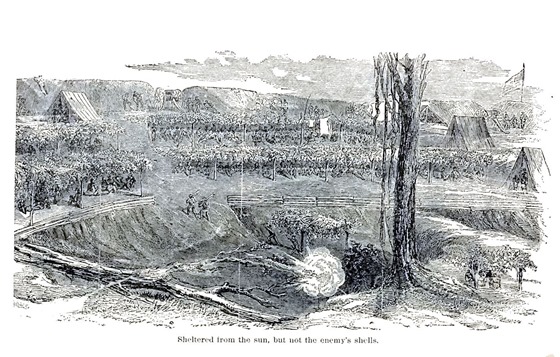JUNE 10TH.—The heat of the sun increases, and we must improve our quarters. Accordingly a part of the day has been spent in cutting cane and building bunks with it on the side of the hill. Such improvements protect us better from the sun.
Last night I sat on the top of a hill awhile, watching the mortar shells flying into the city from the river. High into the air they leaped, and, like falling stars, dropped, exploding among the houses and shaking even the very hills. The lighted fuse of each shell could be seen as it went up and came down, and occasionally I have seen as many as three of them in the air at once. The fuse is so gauged as to explode the shell within a few feet of the ground. The destruction being thus wrought in the city must be very great. We learn from prisoners that the inhabitants are now living in caves dug out of the sides of the hills. Alas! for the women, children and aged in the city, for they must suffer, indeed, and, should the siege continue several months, many deaths from sickness as well as from our shells, must occur. I am sure Grant has given Pemberton a chance to remove from Vicksburg all who could not be expected to take part in the fearful struggle.
We have been looking for rain to cool the air and lay the dust, and this afternoon we were gratified by a heavy shower.












